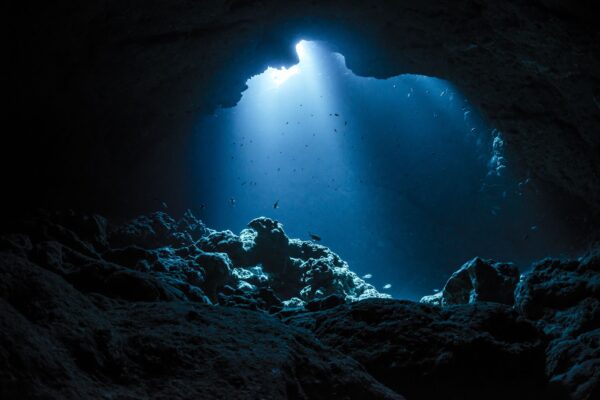June 11, 2025

By: AEOP Membership Council Member Arnia Goode
Over 70 percent of our oceans remain undiscovered, with depths reaching over seven miles below the surface. These extreme environments are too dangerous for human exploration, making unmanned underwater vehicles (UUVs) essential tools for deep-sea discovery. Traditional UUVs depend on wireless communication or physical tethers to receive commands, but these systems are vulnerable to disruptions—whether from environmental factors or mechanical failures. If communication is lost or a tether is damaged, the UUV may become stranded, making retrieval difficult or even impossible.
This is where autonomous underwater unmanned vehicles (AUUVs) offer a game-changing solution. Unlike their traditional counterparts, AUUVs operate independently, relying on onboard data and pre-programmed instructions to navigate and make decisions based on their surroundings. By eliminating the need for constant human control, AUUVs can explore hazardous underwater regions with greater reliability and efficiency, unlocking new possibilities for deep-sea research and resource discovery.
My interest in autonomous underwater systems stems from my passion for robotics and the ocean. Growing up in Maryland, with its rich maritime history and proximity to the Chesapeake Bay, I developed a deep appreciation for the ocean and aquatic ecosystems. During my internship at the University of Maryland Robotics Center, I had the opportunity to design, build, program, and test an autonomous underwater robot.
 With guidance from the Center director, I developed a robot capable of reaching a specific depth and maintaining its position autonomously- even when external forces tried to move it. This required the integration of multiple components, including a motor, pressure sensor, and plunger system, all working in tandem with a PID controller programmed in C++. The system allowed the robot to dynamically adjust its density, enabling precise depth control without external intervention.
With guidance from the Center director, I developed a robot capable of reaching a specific depth and maintaining its position autonomously- even when external forces tried to move it. This required the integration of multiple components, including a motor, pressure sensor, and plunger system, all working in tandem with a PID controller programmed in C++. The system allowed the robot to dynamically adjust its density, enabling precise depth control without external intervention.
My experience at the University of Maryland solidified my interest in autonomous systems- not only for underwater applications but also for broader fields such as space exploration. As I continue my academic and professional journey, I am eager to further explore the design and development of autonomous systems, contributing to advancements that make exploration safer, more efficient, and more accessible.
Find a Volunteering Opportunity
Visit our Program Volunteers page for a tool to find the best opportunity for you.
